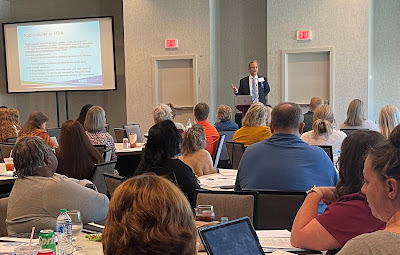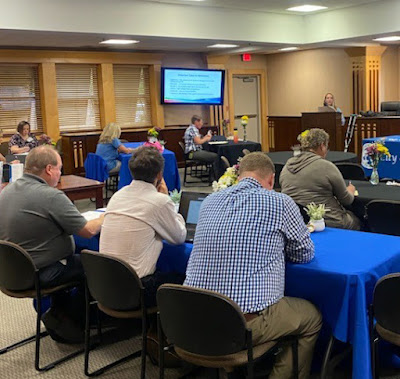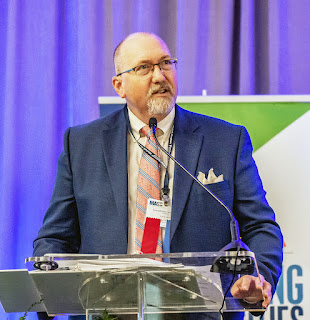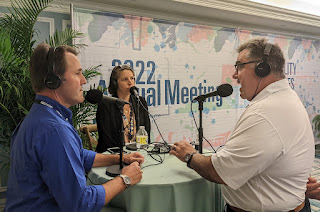These affiliate groups connect peers in various fields of local government to network, learn through specially developed training and share best practices and experiences. The affiliate associations have online listserve systems that make sharing information and best practices around the state easier and faster.
Each affiliate has a board of directors elected by its membership, and the Municipal Association provides management support to the boards.
 |
The SC Association of Stormwater Managers hosts quarterly training
sessions each year. The Third Quarter Training includes an Exhibitor Showcase
highlighting manufacturers and consulting firms. |
Find all the affiliates' membership applications for 2023 below. The nominal membership costs provide each participant with discounted training registrations and access to that group’s closed listserve.
The affiliate organizations are these:
- Municipal Court Administration Association of SC – MCAA provides training for court administrators, clerks of court, municipal judges and other employees involved in court administration.
- Municipal Technology Association of SC – MTASC exposes members to a broad range of technology systems, platforms and solutions. It offers training for IT staff, those with GIS responsibilities and employees working in other departments but whose duties include technology services.
- SC Association of Municipal Power Systems – SCAMPS focuses on legislative initiatives, mutual aid and provides training for elected officials, management staff and operational personnel of the electric cities in the state.
- SC Association of Stormwater Managers – SCASM offers quarterly training on stormwater management policies and best practices. Training addresses topics like proposed changes to stormwater regulations and case studies of innovative practices.
- SC Business Licensing Officials Association – BLOA promotes best practices for administering the local business and professional license tax through training, networking and the Accreditation in Business Licensing and Masters in Business Licensing credentials.
- SC Community Development Association – SCCDA training focuses on economic and community development needs, best practices and successful case studies. Members come from local and state government as well as private industry, elected positions and volunteer positions.
- SC Municipal Attorneys Association – The MAA annual training, designed for city and town attorneys, complies with the Supreme Court of South Carolina Commission on CLE and specialization requirements for continuing education credits. MAA does not have a membership fee or application.
- SC Municipal Finance Officers, Clerks and Treasurers Association – MFOCTA training covers the diverse job responsibilities of its members. MFOCTA sponsors the Municipal Clerks and Treasurers Institute with the Municipal Association and the Joseph P. Riley Jr. Center for Livable Communities.
- SC Utility Billing Association – SCUBA trains members on utility billing, collections and customer service. Programs frequently focus on customer service skills, workplace safety and best practices in utility billing and collections.
- SC Municipal Human Resources Association – MHRA helps members stay current on state and federal labor law and court rulings. Its trainings are accepted by national human resources organizations for continuing education credits.


















